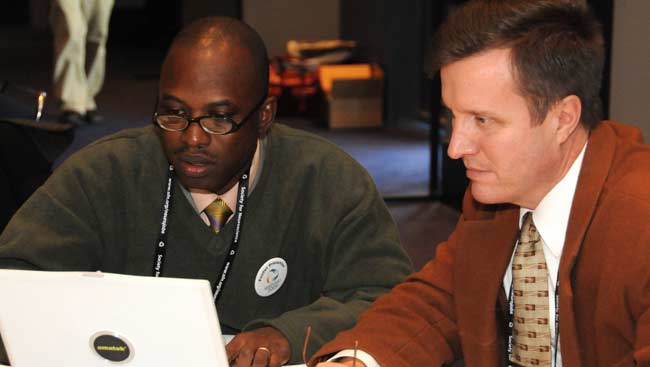Why Be a Mentor?
- Source: University of Michigan Rackham Graduate School
- Featured in:
- Best Practices for Mentoring Relationships

Far from being an extra or time-permitting task, mentoring is as essential to a faculty member’s success as teaching, research, and publication. And, for the same reasons, mentoring benefits students and mentors, advances the discipline, and ensures the quality and commitment of the next generation of scholars.
For students, a mentor:
- Supports their advancement in research activity, conference presentations, publishing, pedagogical skills, and grant writing.
- Provides a resource to help deal with stressful or difficult periods in their graduate careers.
- Helps them to accrue a network that may improve their job prospects.
- Gives them solid advice and advocates for them is their advocate, which can help to lower stress and build confidence.
- Participates in collective activities he or she arranges to promote engagement in the field.
For mentors, your students:
- Keep you abreast of new knowledge and techniques and apprise you of promising avenues for research.
- Build your reputation as a faculty member. Sending successful new scholars into the field increases your professional stature.
- Help build your networks. Helping students make the professional and personal connections they need to succeed will greatly extend your own circle of colleagues.
- Help you attract new, quality students. Word gets around about who the best mentors are, so your students are usually the most likely to recruit — and retain — other outstanding students.
- Give you personal satisfaction. Seeing your students succeed can be as rewarding as getting a major publication or a significant grant.
Effective mentoring advances the discipline because students often begin making significant contributions long before they complete their graduate degrees. Such students are more likely to have productive, distinguished, and ethical careers that reflect credit on their mentors and enrich the discipline. Effective mentoring ensures a higher quality of research, scholarship, and teaching well into the future.
Student Perspective
“My mentor is my strongest advocate and goes to bat for me when my program throws road blocks in my path. The two things I like best about my mentor are one, he thinks outside of the box when looking for funding for the lab, and two, he is very good at keeping his mentees abreast of what is going on as well as encourages us to keep him informed.”
Adapted from University of Michigan’s Rackham Graduate School. Original source: How to Mentor Graduate Students: A Guide for Faculty.








